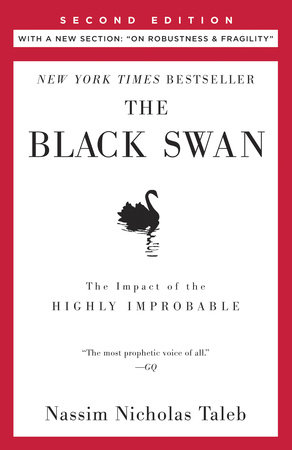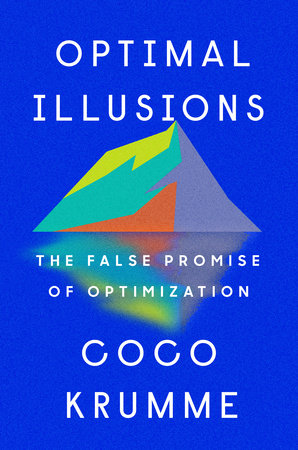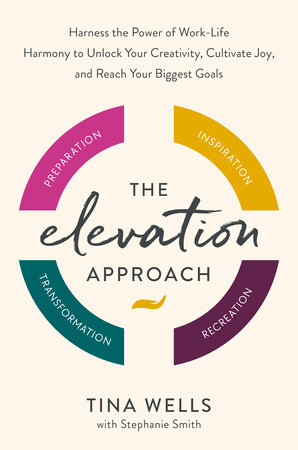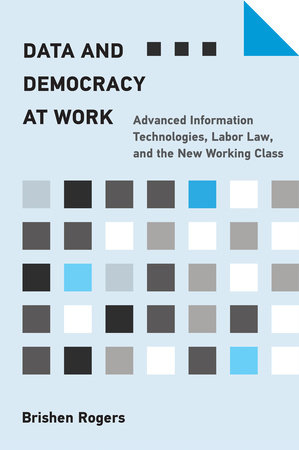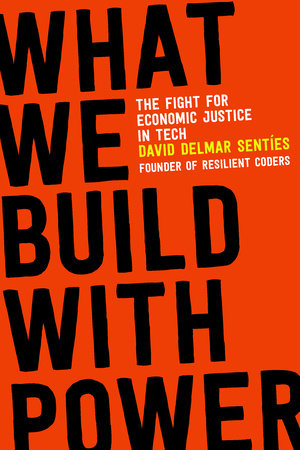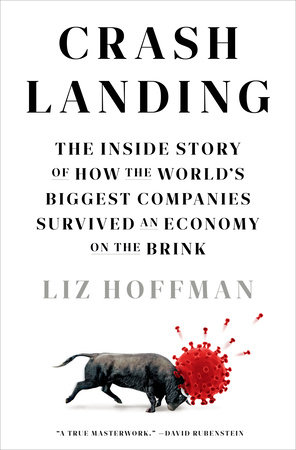Quick Summary
One Sentence Summary
“The Black Swan” by Nassim Nicholas Taleb unravels the impact of highly improbable events and the human tendency to find simplistic explanations for these occurrences.
Big Idea
The big idea of the book is the concept of Black Swan events—unexpected, rare occurrences that have significant impact and are often rationalized in hindsight.
Five Key Ideas
- Definition of a Black Swan: The book defines a Black Swan event as one that is unpredictable, carries a massive impact, and is often inappropriately rationalized after the fact.
- Limitations of Predictions: Taleb discusses the limitations of predictions in a world governed by randomness and unknown variables.
- Psychological Biases: The book delves into human psychological biases, such as the narrative fallacy and confirmation bias, which hinder our understanding of Black Swan events.
- Robustness vs. Fragility: Taleb introduces the concepts of robustness and fragility, advocating for systems and approaches that can withstand or even benefit from unpredictability.
- Practical Applications: The book also explores the practical applications of these ideas in various domains like finance, economics, and personal decision-making.
Actionable Advice
Embrace uncertainty by not over-relying on predictions, focus on building robust systems that can handle unpredictability, and always consider the possibility of unforeseen events in decision-making.
About the Author
Nassim Nicholas Taleb is a Lebanese-American essayist, scholar, statistician, and former trader and risk analyst, known for his work on probability, randomness, and uncertainty.
Read Next
For those interested in exploring similar themes, consider reading “Fooled by Randomness” also by Nassim Nicholas Taleb, “Thinking, Fast and Slow” by Daniel Kahneman, and “Antifragile” by Taleb which further delves into the concept of benefiting from chaos and disorder.
In Depth
Definition of a Black Swan
A Black Swan is an event that defies predictions. It’s unexpected. It’s rare. But when it happens, it changes everything. Nassim Nicholas Taleb crafted this term to describe events that lie outside the realm of regular expectations. These events are impossible to predict because they are beyond what we know.
Imagine a world where only white swans exist. Then one day, a black swan appears. It’s a shock. It’s unexpected. That’s the essence of a Black Swan event in Taleb’s words. They catch everyone off guard.
Taleb breaks down the Black Swan into three parts:
- Unpredictability: You can’t see it coming.
- Massive Impact: It changes the game.
- Rationalized Hindsight: After it happens, people say, “We should have seen it coming.”
The 2008 financial crisis is a perfect example. Banks and investors believed the housing market was stable. The crash was unthinkable. But it happened. It was catastrophic. And after, experts said, “The signs were there.” This rationalization, according to Taleb, is a mistake. It gives a false sense of understanding and control over the unpredictable.
Taleb says, “What we call here a Black Swan… is an event with the following three attributes. First, it is an outlier, as it lies outside the realm of regular expectations, because nothing in the past can convincingly point to its possibility. Second, it carries an extreme ‘impact’. And third, in spite of its outlier status, human nature makes us concoct explanations for its occurrence after the fact, making it explainable and predictable.”
In the book, Taleb dives deep into the human mind. We crave patterns. We want predictability. But this desire leads to oversimplification. We ignore what we don’t see. We focus on what’s familiar. This blinds us to the Black Swans.
Take the Thanksgiving turkey as another example from the book. The turkey lives a comfortable life. Each day reinforces its belief that life is good and predictable. But then Thanksgiving arrives. For the turkey, it’s a Black Swan. It’s sudden and devastating. But for the butcher, it’s expected. This highlights how perspective shapes our understanding of unpredictability.
Understanding Black Swans isn’t about fear. It’s about recognizing the limits of our knowledge. It’s about accepting that some things are beyond our control. By acknowledging these unpredictable events, we can better prepare for them, not by predicting the unpredictable, but by building systems and mindsets that are resilient to shocks and surprises.
The definition of a Black Swan serves as a foundation for the rest of the book. It’s a call to rethink our approach to uncertainty and the unknown. It’s a reminder that sometimes, the most significant events are the ones we never see coming.
Limitations of Predictions
Predicting the future? It’s harder than it seems. Taleb argues that we’re wired to believe we can predict events. But in reality, our predictions often fail. This is especially true for rare, impactful events – the Black Swans.
Why do predictions fail? It’s because of randomness and complexity. The world is more random and complex than we think. We overlook this. We try to find patterns and predict based on past events. But past events don’t always tell us what will happen in the future.
Taleb uses the example of a casino. A casino owner might worry about gamblers cheating or winning big. But what really hit one casino was unexpected – a performer’s tiger attacked him. No one saw it coming. It wasn’t in the casino’s risk assessments. It was a Black Swan.
“The inability to predict outliers implies the inability to predict the course of history,” Taleb writes. This quote highlights the core of the idea. Big, history-changing events are often unpredictable. They come out of nowhere.
The problem with predictions is overconfidence. We think we know more than we do. We base decisions on these predictions. When they’re wrong, the consequences can be huge. Think of the financial models before the 2008 crash. They couldn’t predict the crisis. They didn’t see the Black Swan.
So, what’s the solution? It’s not about making better predictions. It’s about recognizing the limitations. It’s about preparing for the unpredictable. It’s about being humble in the face of uncertainty.
Taleb doesn’t just criticize prediction models. He digs into why they fail. He looks at the human side of it. Our desire for certainty. Our discomfort with the unknown. These traits lead us to trust faulty predictions.
This key idea is a wake-up call. It tells us to be cautious with predictions. To understand their limitations. It’s a call to build systems and make decisions that can handle surprises. Because in the end, the Black Swans are the events that really shape history. They’re the ones we can’t afford to ignore.
Psychological Biases
We think we understand the world. But often, we don’t. Taleb dives into how our minds trick us. We have biases. These biases blind us to the unexpected, to the Black Swans.
First, there’s the narrative fallacy. We love stories. We use them to make sense of the world. But stories simplify things. They make us think events are more predictable than they really are. We create neat stories after events happen. This makes us think we understand them, even if we don’t.
Taleb gives the example of historical accounts. Historians write about wars and revolutions as if they were inevitable. But were they? Often, these events were Black Swans. They were unpredictable. The stories make them seem logical, but that’s a hindsight illusion.
“We like stories, we like to summarize, and we like to simplify, i.e., to reduce the dimensions of matters,” Taleb states. This quote sums up the narrative fallacy. We reduce complex events to simple stories. It feels good, but it’s misleading.
Then, there’s confirmation bias. We look for information that confirms what we already believe. We ignore what doesn’t fit. This bias makes us overconfident. We think we know more than we do. It makes us blind to Black Swans.
An example from the book is the way experts ignored signs of the 2008 financial crisis. They had beliefs about the economy. They looked for data that supported these beliefs. They ignored warning signs. Their confirmation bias hid the Black Swan from them.
Understanding these biases is crucial. They shape how we see the world. They influence our decisions. But they also mislead us. They make us vulnerable to Black Swans.
This key idea is about self-awareness. It’s about recognizing our mental limitations. It’s a call to question our assumptions. To look beyond our usual explanations. To be open to the unexpected.
Taleb doesn’t just describe biases. He shows how they play out in real life. He connects psychological theories to practical examples. This makes the idea powerful. It’s not just theory. It’s about how we live and how we can be blindsided by events we never see coming.
Robustness vs. Fragility
Life is unpredictable. Taleb knows this. He tells us to build things that survive shocks. Things that can even gain from chaos. This is about being robust. Better yet, antifragile.
Fragility means breaking under stress. Glass shatters when dropped. That’s fragile. But what’s robust? It’s something that survives shocks. Like a rubber ball, it bounces back.
Taleb pushes further. He introduces antifragility. Antifragile things don’t just survive shocks. They grow stronger. Think of the Hydra from Greek mythology. Cut one head, two grow back. That’s antifragile.
An example? The restaurant industry. Individual restaurants are fragile. Many fail. But the industry as a whole? It’s antifragile. When one restaurant fails, it leaves space for new ones. New ideas. New cuisines. The industry evolves. It gets better because of the failures, not despite them.
“Some things benefit from shocks; they thrive and grow when exposed to volatility, randomness, disorder, and stressors and love adventure, risk, and uncertainty,” Taleb explains. This quote captures the essence of antifragility. It’s about thriving in uncertainty, not just surviving.
This idea changes how we see the world. It’s not enough to avoid breaking. We should build systems, businesses, even personal lives that gain from the unexpected. We should embrace risks and shocks. They make us stronger.
Taleb’s concept shifts our focus. It’s a different way to prepare for Black Swans. Don’t just brace for impact. Use the impact. Grow from it.
This key idea is practical. It’s about resilience in finance, in business, in life. It’s about adapting and improving in a world full of surprises. It’s a powerful shift from merely surviving to actively thriving amidst chaos and unpredictability.
Practical Applications
Taleb doesn’t just talk theory. He shows how to use his ideas in real life. It’s about handling uncertainty. About making better choices in a world full of Black Swans.
First, there’s decision-making. Taleb urges us to consider the improbable. When making choices, think about the worst-case scenario. Not just the likely outcomes. This is about being cautious. But it’s also about seeing opportunities others miss.
In finance, this means not putting all your eggs in one basket. Diversify. Taleb talks about the “barbell” strategy. On one end, you have safe investments. On the other, high-risk ones. Avoid the middle. This way, you’re safe from big losses. But you can also gain from unexpected successes.
Taleb gives the example of venture capital. Most startups fail. But a few succeed big. Venture capitalists know this. They invest in many startups. They expect most to fail. But the few that succeed pay off big. They benefit from the unpredictability. From the Black Swans.
“Do not just avoid small mistakes; make sure you can afford big ones,” Taleb advises. This quote is about risk management. It’s about preparing for big shocks. It’s practical advice for anyone dealing with uncertainty.
But it’s not just finance. Taleb’s ideas apply to many areas. In business, it’s about being flexible. About adapting quickly to changes. In personal life, it’s about being open to unexpected opportunities. It’s about learning from surprises, not just fearing them.
This key idea is empowering. It shows how to live in an unpredictable world. How to make smarter choices. How to see uncertainty as an advantage, not just a threat.
Taleb’s practical applications make his theories relatable. They show how to use his ideas in everyday life. They’re about turning the concept of Black Swans into actionable strategies. It’s about thriving in a world where the only certainty is uncertainty.
Actionable Advice
- Expect the Unexpected: Always consider unlikely events. Don’t assume the future will be like the past.
- Embrace Uncertainty: Don’t fear the unknown. Use it as an opportunity to learn and grow.
- Diversify Risks: Spread out your investments, interests, and efforts. Don’t put all your eggs in one basket.
- Prepare for the Worst: Think about the worst-case scenarios. Plan how you’d handle them.
- Avoid Overconfidence: Stay humble. Acknowledge what you don’t know.
- Build Resilience: Create systems and habits that can withstand shocks. Be robust, better yet, antifragile.
- Learn from Mistakes: When things go wrong, analyze and learn. Don’t just move on.
- Be Flexible: Stay adaptable. Be ready to change plans when new information comes.
- Seek Diverse Opinions: Listen to different perspectives. Avoid echo chambers.
- Challenge Assumptions: Regularly question your beliefs. Are they based on solid evidence or just comfort?
About the Author
Nassim Nicholas Taleb is a Lebanese-American essayist, scholar, and former options trader known for his work on probability, uncertainty, and randomness. Born in 1960 in Lebanon, he witnessed the impacts of unpredictability firsthand during the Lebanese Civil War. Taleb holds an MBA from the Wharton School and a Ph.D. in Management Science from the University of Paris. He’s taught at several universities, including NYU.
Taleb’s work focuses on how to deal with the unknown and the unpredictable. He’s critical of financial theories that ignore the impact of rare, unpredictable events, which he calls “Black Swans.” He advocates for robustness and antifragility — systems that not only withstand chaos but thrive in it.
Taleb’s bestselling books, including “The Black Swan,” “Antifragile,” and “Fooled by Randomness,” challenge conventional wisdom and urge readers to think differently about risk and uncertainty. He’s known for his blunt style and deep insights into the complexities of the modern world. Taleb’s beliefs center around skepticism of narratives, respect for randomness, and the importance of being prepared for the unexpected in both personal and professional life.
Read These Next
You might like these similar books
- “Fooled by Randomness” by Nassim Nicholas Taleb
- “Thinking, Fast and Slow” by Daniel Kahneman
- “Predictably Irrational” by Dan Ariely
- “Antifragile: Things That Gain from Disorder” by Nassim Nicholas Taleb
- “The Signal and the Noise” by Nate Silver
FAQ
Q: What is a Black Swan event?
A: A Black Swan is a rare, unpredictable event with significant impact.
Q: Is the book “The Black Swan” easy to read?
A: It’s intellectually stimulating and may require careful thought, but it’s accessible to a broad audience.
Q: Does the book provide real-life examples?
A: Yes, Nassim Nicholas Taleb uses numerous real-world examples to illustrate his concepts.
Q: Can the ideas in “The Black Swan” be applied to everyday life?
A: Absolutely. The book offers insights that can be applied in personal decision-making, business, and finance.
Q: Who should read “The Black Swan”?
A: Anyone interested in understanding unpredictability in our world, especially those in finance, economics, or anyone making decisions under uncertainty.
Q: Does Taleb offer solutions to dealing with Black Swan events?
A: Yes, he discusses concepts like robustness and antifragility as ways to not only survive but thrive in the face of unexpected events.

